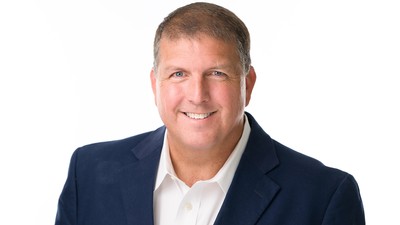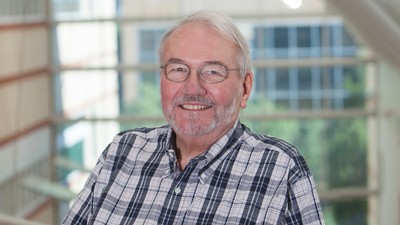Uncovering Secrets — The Answer's in the Books
UNCOVERING SECRETS — THE ANSWER’S IN THE BOOKS
Forensic investigations are all the rage on television. Medical investigators get to the bottom of the case by the end of the hour. The clues are well hidden and the process is exacting, if not rapid. The outcome? Exciting, whether it’s in Las Vegas, Miami, New York or Boston.
But that’s the world of entertainment.
How about the world of business? Are financial sleuths out there dissecting the books of suspect companies, uncovering the misdeeds of capital criminals?
The answer is yes, and Utah State University School of Accountancy professor Cindy Durtschi has come up with an innovative way to train the accounting world’s future detectives — make that forensic accountants.
“The term ‘forensic accountant’ is rather new,” Durtschi said. “But the concept is simple. Forensic accountants look for fraud.”
And, as Durtschi said, there are all kinds of fraud. There’s asset misappropriation — to those who are non-business types, that’s stealing money. In cases where people are caught, the average amount misappropriated is $80,000-$90,000. That’s substantial.
“Over the years, I’ve incorporated every fraud I’ve heard about into this course,” Durtschi said.
Forensic accounting is a specialty that combines a number of skills, including accounting, auditing and investigation. Durtschi teaches Accounting 6540 — Forensic Accounting — in USU’s College of Business. Her approach to the graduate-level course is creative and has been recognized nationally. She received the 2006 American Accounting Association Innovation in Audit Education Award for her published case in forensic accounting — “The Tallahassee BeanCounters: A Problem-Based Learning Case in Forensic Audition.”
The Tallahassee BeanCounters has become a very important part of Durtschi’s class as students take a look at the company and its books. But that’s jumping ahead a bit.
The course is centered around a problem-based learning experience — that is, Durtschi presents a “problem” and the students, working through multiple steps in the hands-on experience, must come up with a solution. The course provides a complete overview of the forensic accounting arena.
Students look at various types of fraud, learn to recognize the red flags of fraud and acquire specific skills used in fraud investigations. There’s financial statement analysis with the aim to discover firms that manage earnings in a way that might lead to fraud. The students complete a Benford analysis — a computer-assisted method of flagging suspect accounts.
“The course is team-based and prepares students for real auditing engagements,” Durtschi said. “It is based on real firms, real accounting numbers and a case that simulates a real company setting.”
Graduate student Hunter Lassetter enjoyed working in a team situation.
“Because I worked with the same team throughout the semester, the class felt like a real-world simulation in that the team members became my co-workers and friends,” she said.
Companies provide their books, and the students run the numbers and provide an analysis. The students must communicate directly with the companies and provide reports. One recent company reported to Durtschi that the students were observant and wished its own employees were as detail oriented.
“The course is unique in that it took us in so many directions,” Lassetter said. “It discussed topics that included murder and divorce to demonstrate the skills accountants can, and should, apply every day on the job.
The final project is a complete forensic accounting and investigation of the Tallahassee BeanCounters, a fictional minor league baseball team that Durtschi created.
The process is complex and detailed, and puts the pressure on Durtschi, who provides all the answers to questions posed by the student teams during their investigations. But others are involved as well. She recruits individuals to pose as principals in the BeanCounters. Several fellow accounting professors fill those roles, as do spouses and other staff in the School of Accountancy. During the information exchange with the students, Durtschi sends email copies to all the “actors” so they are completely filled in and in sync about the ball team’s business affairs and practices.
“I want to make this project as realistic as possible,” Durtschi said. “The teams can choose a list of suspects to interrogate. The goal is to obtain a confession or accumulate evidence that might be used in the presentation of the final case.”
To complete the project, student teams must prepare a final trail of evidence report. The students are not interviewed as expert witnesses, but rather, the written record is reviewed as if it were to be presented in court. The student teams must organize its facts and evidence to provide sufficient, high-quality, legally obtained evidence. The students must prove a crime was committed, what that crime is, how it was committed and the intent. Finally, they must produce proof of who did it, who benefited from the crime and where the money went.
“By the time the students get to the interview portion of the assignment, they are loaded and ready to go,” Durtschi said. “They want confessions.”
Durtchi’s course is offered once a year at USU. The work is time consuming for the professor, but extremely valuable to the students. She said she wants them totally prepared for the work world.
And when they are prepared, they not only enter an exciting career, they enter a “hot” career. In its 2007 “How Did You Do?” feature that details what Americans earn, “Parade Magazine” listed forensic accountant at the top of the list of 2007’s hottest jobs for college graduates. That piece said that the field combines accounting, auditing and investigative skills in a career that can provide an income ranging from $30,000 to $150,000.
Following graduation, Durtschi said students can go to work for the big audit firms, but others can look to careers with the FBI or other law enforcement agencies.
“Unfortunately, there is a big need,” Durtschi said.
Durtschi’s forensic accounting course provides tangible benefits for its students, including Lassetter, who has accepted a position with one of those powerhouse firms.
“The course was extremely valuable to me,” Lassetter said. “I’ve been hired and I’ll be doing forensic accounting in the Dispute Analysis and Investigations practice of PricewatershouseCoopers when I graduate.
“I chose to come to Utah State University because it is the only university in Utah to offer a forensic accounting course. Not to mention that the course is taught by one of the most highly respected professors in the forensic accounting field. Cindy Durtschi devoted all of her time and energy to making the class realistic, interactive and fun. It worked!”
Download PDF
Comments and questions regarding this article may be directed to the contact person listed on this page.






